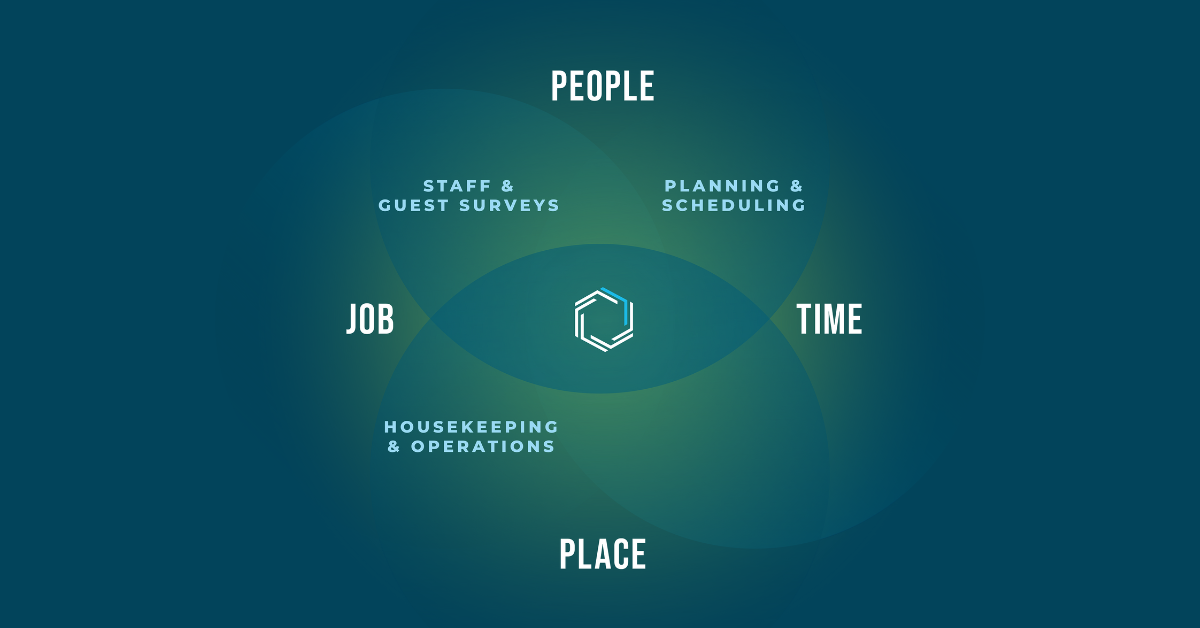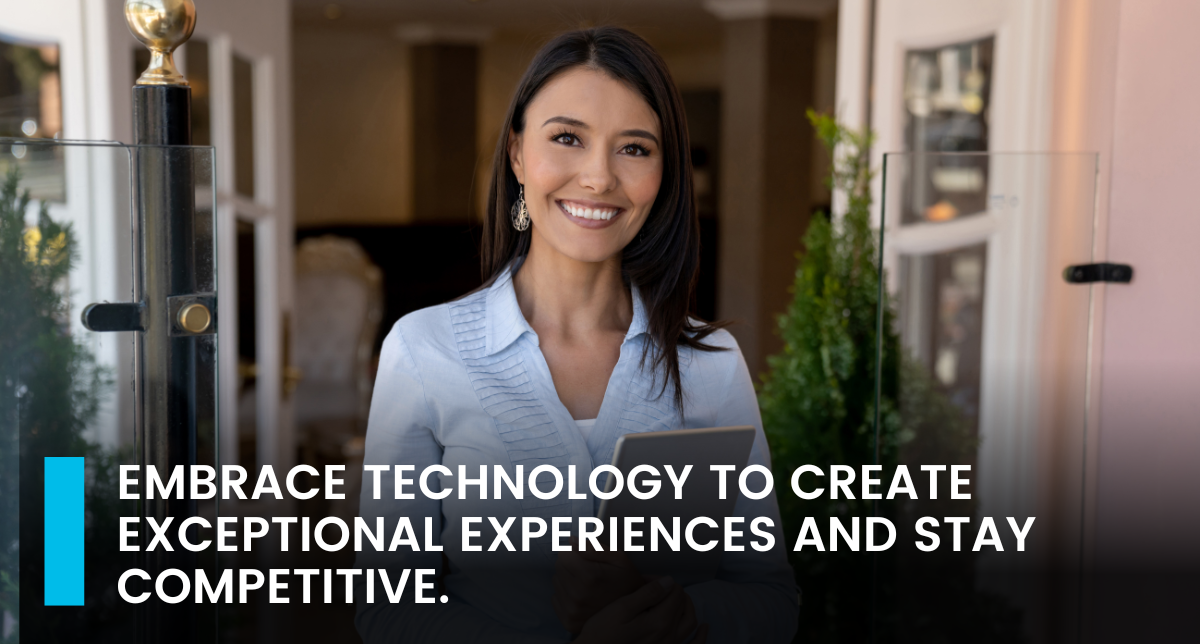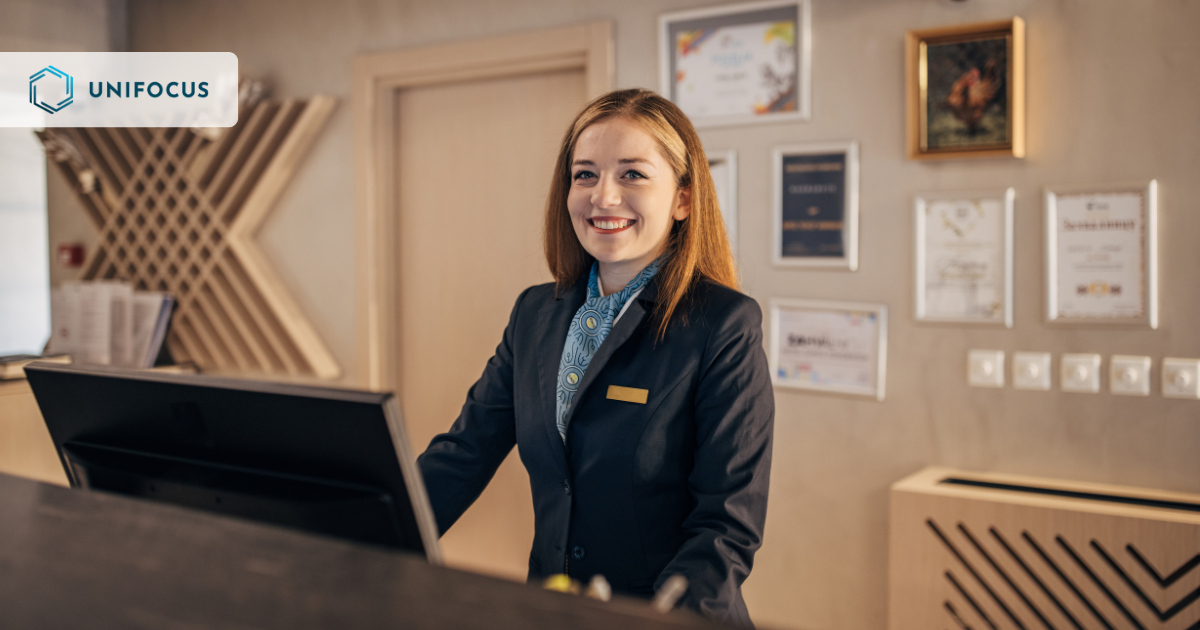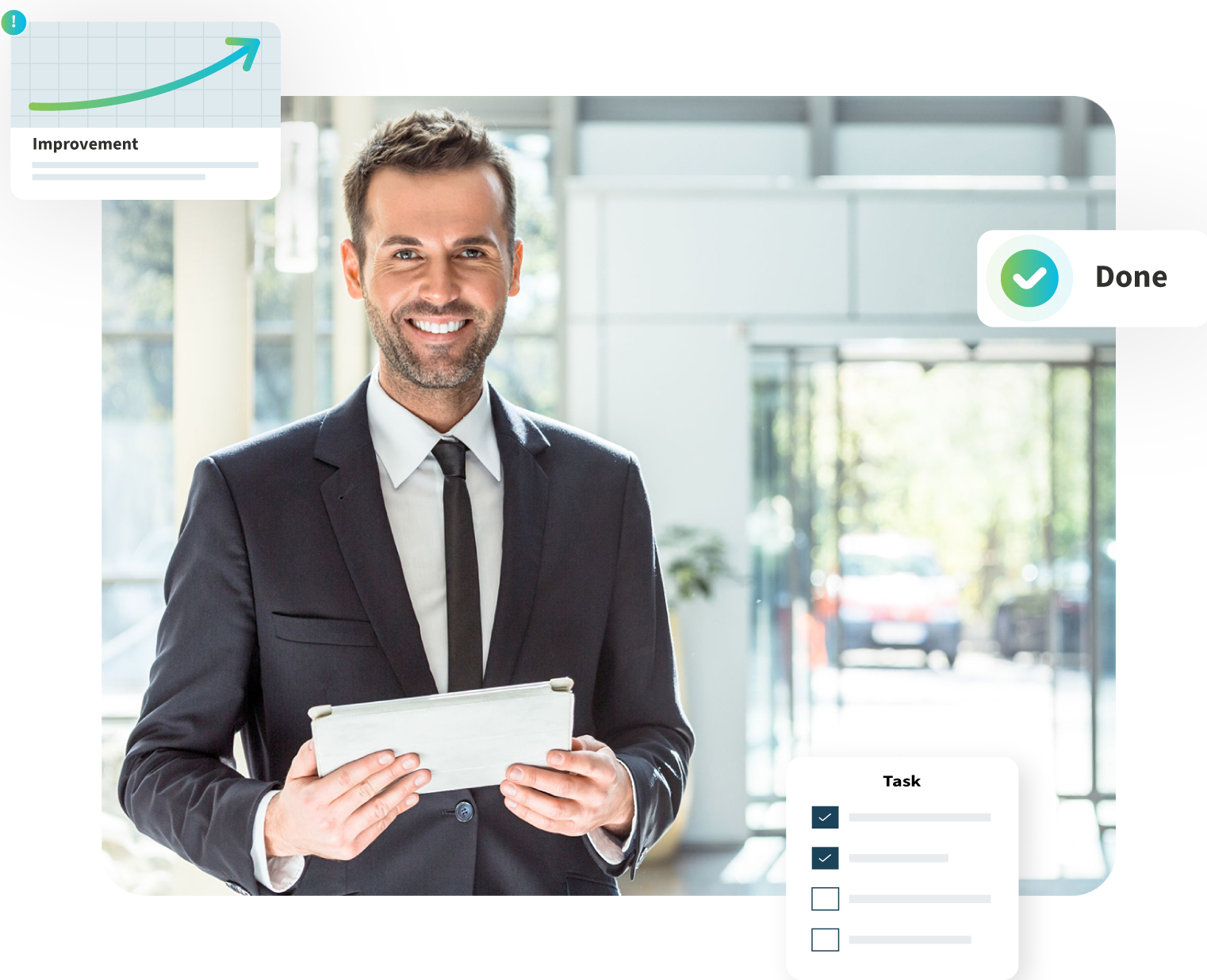The hotel industry is no stranger to innovation, and in recent years, it has been undergoing a dramatic transformation with the rapid adoption of technology. While hoteliers have always strived to provide exceptional, high-touch service, the integration of technology has raised concerns about its impact on guest satisfaction. However, when used strategically, technology has the power to not only deliver a seamless guest experience but also generate bottom-line benefits for hotels. From guest request technology to advanced hotel operations management systems, let's explore how technology is revolutionizing the way hotels cater to their guests' needs and streamline their operations.
Guest Request Technology: Enhancing Communication and Service
One of the most visible ways technology has improved the guest experience is through guest request technology. Traditionally, guests would call the front desk or interact directly with hotel staff to make requests or report issues. However, with the advent of guest request technology, communication has become faster, more efficient, and transparent.
- Mobile Apps for Guest Requests: Many hotels now offer mobile apps that allow staff to enter guest requests or report issues right from their smartphones. Whether it's requesting extra towels, room service, or reporting a maintenance problem, staff can easily communicate and track guest requests through the app. This not only saves time for guests but also reduces the workload on the front desk staff, allowing them to focus on more critical tasks, knowing that a team member is automatically assigned to carry through with the request.
- In-Room Tablets: Some hotels have installed in-room tablets that serve as a digital concierge. Guests can use these tablets to explore hotel services, place room service orders, make restaurant reservations, or even control room amenities like lighting and temperature. This technology empowers guests with self-service options, enhancing their overall experience while reducing the need for constant face-to-face interactions with hotel staff.
- Chatbots and Virtual Assistants: Chatbots and virtual assistants are becoming increasingly prevalent in the hotel industry. These AI-powered tools can engage with guests, answer frequently asked questions, and help with simple requests. While they cannot replace the human touch entirely, they significantly contribute to faster response times and provide guests with immediate assistance around the clock.
- Internet of Things (IoT) Integration: IoT technology allows for seamless integration between various devices and systems in hotel rooms. Guests can control lighting, thermostats, and even entertainment systems through voice commands or mobile apps. This level of personalization not only impresses guests but also adds a modern touch to the overall hotel experience.
Hotel Operations Management Technology: Streamlining Efficiency
Apart from enhancing guest-facing aspects, technology is also revolutionizing hotel operations behind the scenes. Hotel operations management technology has the potential to make staff more productive and efficient, enabling them to achieve more with fewer resources.

- Property Management Systems (PMS): A robust Property Management System is the backbone of any hotel's operations. These systems consolidate various functions, including reservations, check-ins, check-outs, housekeeping, and billing, into one unified platform. This integration minimizes manual errors, streamlines processes, and ensures a smooth workflow for hotel staff.
- Automated Housekeeping and Maintenance Systems: Technology can optimize housekeeping and maintenance operations through automated systems. For example, the PMS can automatically assign tasks to housekeeping staff based on room status, and once completed, the system updates the room's status in real-time. This not only makes housekeeping more efficient but also ensures quicker turnaround times for room availability.
- Inventory and Asset Management: Efficient inventory and asset management systems enable hotels to keep track of their supplies, such as linens, toiletries, and other amenities. When integrated with the PMS, these systems can automatically trigger reorders when supplies run low, reducing the chances of running out of essential items.
- Staff Scheduling and Performance Monitoring: Sophisticated staff scheduling software takes into account historical data, current occupancy levels, and expected workload to optimize staff allocation. Furthermore, performance monitoring tools can track staff productivity, allowing management to identify training needs and recognize outstanding performance.
- Revenue Management Systems: Revenue management systems use data analytics to predict demand patterns and optimize room rates in real-time. This helps hotels maximize revenue and occupancy rates, ultimately boosting profitability.
Striking the Balance: The Human Touch vs. Technology
While the integration of technology undoubtedly brings numerous benefits to the hotel industry, it is essential to strike the right balance between the human touch and automation. Despite the convenience and efficiency offered by technology, guests still value genuine interactions and personalized service from hotel staff.
Hoteliers must focus on leveraging technology to enhance the guest experience rather than replacing human interaction. The aim should be to empower staff with technology that frees up their time for more meaningful engagements with guests. For example, instead of spending excessive time on administrative tasks, staff can devote their attention to anticipating and fulfilling guest needs, providing recommendations, and creating memorable experiences.
The hotel industry's rapid transformation through technology is a testament to its adaptability and commitment to delivering exceptional guest experiences. From guest request technology that enhances communication and service to advanced hotel operations management systems that streamline efficiency, technology has become a valuable ally for hoteliers.
By embracing technology while maintaining the human touch, hotels can create a harmonious balance that delights guests and improves staff productivity. The key lies in using technology strategically, focusing on enhancing guest experiences, and ensuring that technology remains a facilitator rather than a replacement for human interaction.
As the hospitality landscape continues to evolve, hotels that successfully leverage technology to its fullest potential will undoubtedly stand out in the competitive market, attracting and retaining loyal guests while enjoying sustainable bottom-line benefits.






